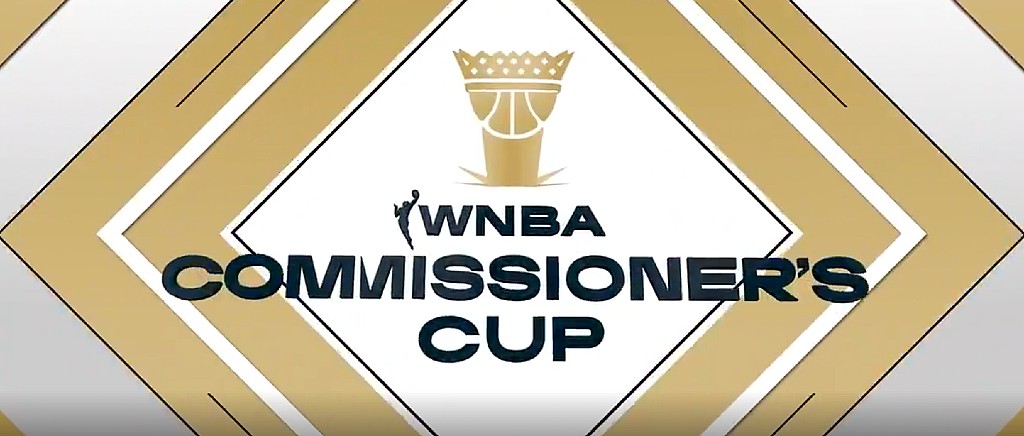
The WNBA season will tip-off on Friday, May 14 with four games that will also double as the first games in the inaugural WNBA Commissioner’s Cup, a first half of the season competition that will see the two teams with the best records in their 10 cup games (that are also regular season games) face off in a championship game on August 12 in Phoenix after the Olympic break with a $500,000 prize pool on the line.
The league released the full details of the Commissioner’s Cup on Wednesday, with the format, prize pool breakdown, and the announcement of a broadcast partnership with Amazon that will include exclusivity on 16 games per season, including nine Cup games and the championship game on Prime Video.
The format of the competition is fairly simple, each of the 12 teams will have their first home and away games against in-conference foes serve as their 10 Cup games, with all games coming between the May 14 start date and the July 11 end of the first half going into Olympic break. Cup games are now denoted by the Commissioner’s Cup logo on the WNBA’s schedule. The team with the best record in those 10 games from each conference will face each other in the championship game in Phoenix in a non-regular season contest prior to the return of the second half of the season.
As for the prize pool breakdown, players on the winning team will get at least $30,000, with the rest of the pool going to players on the runners-up and a $5,000 bonus for the championship game MVP.
The title game on Aug. 12, which will refocus the spotlight on WNBA stars prior to the resumption of regular-season action for all 12 teams on Sunday, Aug. 15, will see players vie for a piece of the $500,000 prize pool. Members of the winning team will be able to earn in excess of $30,000 per player, while those on the runner-up team will have an opportunity to earn $10,000 per player. An additional $5,000 will be awarded to the MVP of the Commissioner’s Cup Championship Game.
The Cup’s creation is the fulfillment of the league’s promise in the last CBA negotiations to add more earning opportunities for players, as well as sponsorship possibilities for the league. For some players on their rookie scale deals, being on the winning team could mean more than a 50 percent salary bonus, which is a significant deal.
